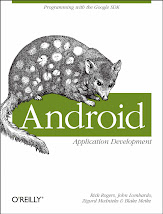I am no longer working at a mobile game company. Not because I became disillusioned with mobile games – I’m still advising people and companies in the mobile games arena. But the mobile games train has left the station. The time for startups in mobile games – at least until some fundamental shift occurs – has passed, and acquisitions and consolidation are a big part of mobile game news these days. I look forward to Kayak more-fully realizing the potential of the products the Chasma team created.
Mobile games transformed my view of a new vehicle for applications delivery. And, while mobile games are now a battlefield for larger companies, new areas of non-game mobile applications are opening up. The same low-friction channels and staggering numbers of mobile customers will do for mobile search and rich forms of mobile media what they did for mobile games. In many ways, the landscape is like that of mobile games three years ago: the technologies and delivery vehicles are there, waiting to be adroitly exploited.
Even more exciting than the mobile games business, where m-commerce and billing-on-behalf-of were the keys to making large piles of money from simple products, the business model for new fields like mobile search is still malleable. Stunning breakthroughs is business strategy will unfold alongside what are likely to be the most sophisticated mobile applications ever created.
Mobile search holds the key to a shift in the mobile telephony user’s usage patterns that is far more powerful than features like push-to-talk that, up to now, form the basis for differentiation among mobile service offerings. It is an exciting time in mobile applications that will reverberate through the whole structure of the mobile network.
To take but one example:
Google’s brilliantly simple user interface has conditioned people to the belief that search is simple, because it is simple to use and delivers the right results so reliably. This is, of course, a misconstruction of what is, in reality, a subtle, deep, and complex system that happens to work very well. Even more than Web search, mobile search will tie together information sources from the mobile network, the Web, and numerous structured, specialized feeds into a product that appears simple, but represents a new level of sophistication in search, as well as breaking new ground in mobile applications.




